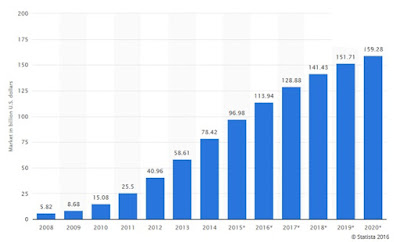Twitter Feed
The Endpoint Imperative: In a Software World, Hardware Does Matter
Hardware matters. From productivity to security to innovation, make sure your machines can keep up. Intel’s Sarah Wieskus joins The End Point Imperative: A Podcast series from Intel to discuss…
IT Transformation with Watson
Credit: Shutterstock by Kevin Jackson & Dez Blanchfield IBM recently launched an exciting new project in the form of a podcast series produced and hosted Dez Blanchfield, appropriately titled the…
The Endpoint Imperative: A Form Factor Renaissance
Workplace expectations are changing, and along with them, the devices we use to do our jobs. In this episode of “The End Point Imperative”, Intel’s Sarah Wieskus tells us about…
Cloud Storage 2.0 Set To Dominate Market
The enterprise data storage marketplace is poised to become a battlefield. No longer the quiet backwater of cloud computing services, the focus of this global transition is now going from…
Top “Cloud Musings” Posts For 2017
( This content is being syndicated through multiple channels. The opinions expressed are solely those of the author and do not represent the views of GovCloud Network, GovCloud…
The Endpoint Imperative: ID’ing and Overcoming the Stumbling Blocks to Digital Transformation
Digital Transformation is the No 1 priority for organizations large and small. It’s imperative that IT remove any obstacles to digital transformation success – including outdated PCs and mobile devices.…
Industry Verticals Tackle Unstructured Data
Organizations around the world are struggling to cope with the current data explosion. A vital characteristic of this data is that it is unstructured and represents things like email,…
The Endpoint Imperative: The Perimeter is Dead; Long Live the Perimeter!
Cloud, mobility and the Internet of Things have obliterated the traditional perimeter that protected organizations. The result: Higher productivity, but bigger challenges for security, data protection, and mobile device management.…
The Data Storage Explosion
Cloud computing innovation will power enterprise transformation in 2018. Cloud growth is also driving a rapid rise in the storage market, exacerbating the enterprise challenge around storage cost and complexity.…
Digital Transformation Drives Mainframe’s Future
Digital Transformation is amplifying mainframe as mission critical to business growth more than ever before. With 70% of the world’s corporate data and over half of the world’s enterprise…
- Enable cloud service arbitrage based on cost, performance or operational need;
- Help companies migrate operations to the cloud and assist with staff augmentation and training;
- Provide cloud service auditing and SLA monitoring services;
- Help in focusing and managing organizational cloud service demand;
- Provided toolsets to assist in the migration and integration of enterprise applications; and
- Help in change management and the selection and integration of other managed services.
By automating and operationalizing the governance of cloud services, CSBs can efficiently multi-source services and augment them with third party metering and monitoring. Using CSBs, organizations also accelerate their transition to hybrid IT models. This marketplace is typically segmented type of services: cloud brokerage and cloud brokerage enablement, wherein cloud brokerage enablement is further segmented into internal and external brokers. When used internally, cloud enablement platforms helps enterprises adopt the new hybrid IT and multi-sourced operating model. By building organic expertise, companies can personalize IT service consumption and unify
IT service delivery through the use of a corporate self-service store, a dynamic service marketplace, and continuous delivery. This centralized, supply chain approach unifies the order, execution, and management of multi-sourced solutions across legacy and cloud resources, by centrally delegating and tracking execution.
(This post was brought to you by IBM Global Technology Services. For more content like this, visit Point B and Beyond.)
( Thank you. If you enjoyed this article, get free updates by email or RSS – © Copyright Kevin L. Jackson 2016)
Cloud Computing
- CPUcoin Expands CPU/GPU Power Sharing with Cudo Ventures Enterprise Network Partnership
- CPUcoin Expands CPU/GPU Power Sharing with Cudo Ventures Enterprise Network Partnership
- Route1 Announces Q2 2019 Financial Results
- CPUcoin Expands CPU/GPU Power Sharing with Cudo Ventures Enterprise Network Partnership
- ChannelAdvisor to Present at the D.A. Davidson 18th Annual Technology Conference
Cybersecurity
- Route1 Announces Q2 2019 Financial Results
- FIRST US BANCSHARES, INC. DECLARES CASH DIVIDEND
- Business Continuity Management Planning Solution Market is Expected to Grow ~ US$ 1.6 Bn by the end of 2029 - PMR
- Atos delivers Quantum-Learning-as-a-Service to Xofia to enable artificial intelligence solutions
- New Ares IoT Botnet discovered on Android OS based Set-Top Boxes



